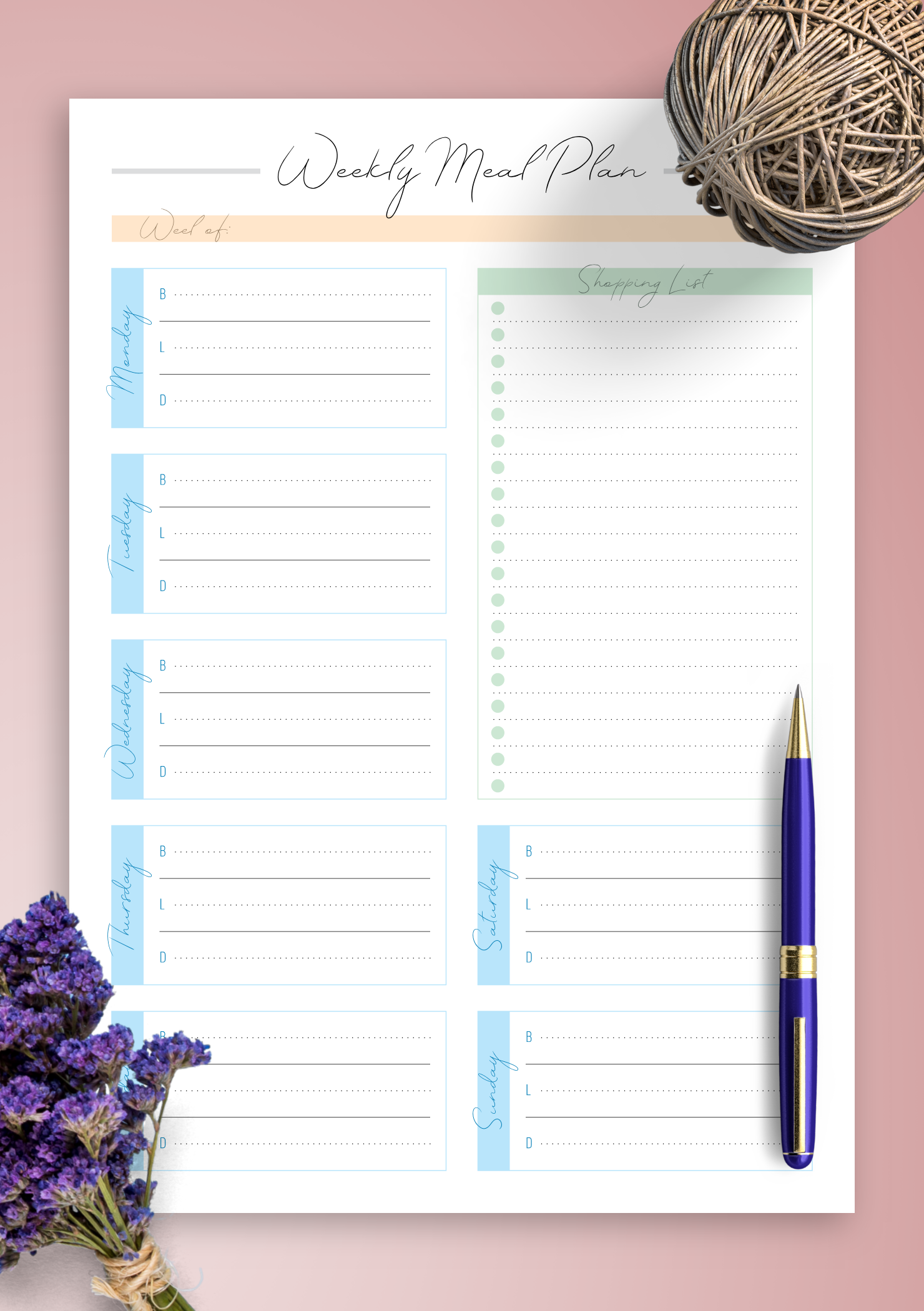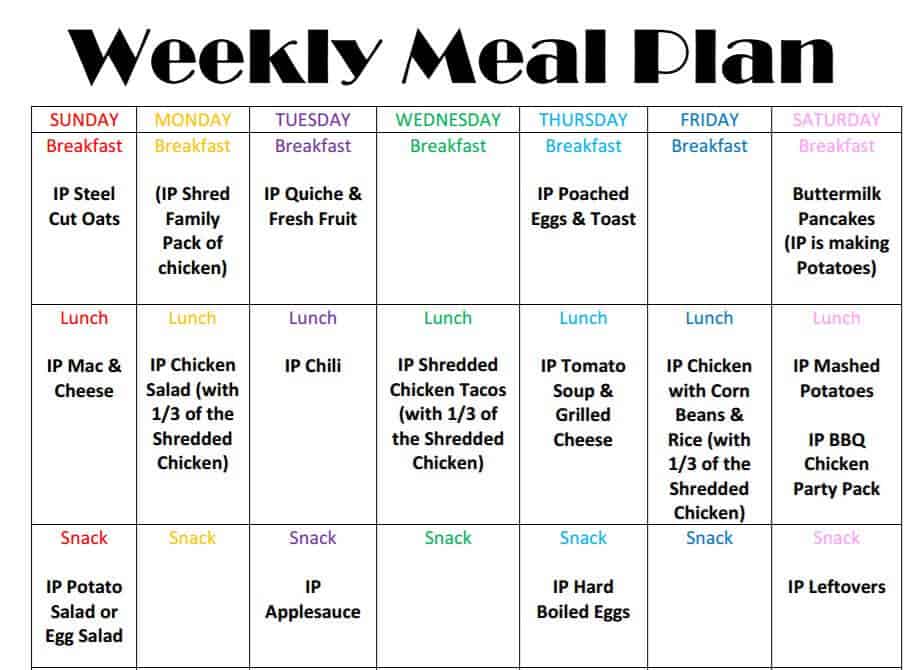

That prevents boredom and helps ensure you get all the nutrients your body needs. Eat a more varied diet: Meal planning boosts the variety of foods you eat according to a French study.When you know your meals in advance, you won’t spend valuable minutes debating what to cook, and you can buy all of your ingredients at once and do prep work in advance. Save time: The time you spend planning a menu pays off during the rest of the week.Planning meals helps reduce food waste, which is smart for the environment (and your wallet). Reduce waste: Every time you buy or cook more food than you need and throw out the extra, you’re wasting a valuable resource.And even if you make takeout part of your meal plan, you’ll be budgeting for it. Spend less money: Eating at restaurants and buying prepared foods is always more expensive than prepping your own food, Cording says.Meal planning isn’t just beneficial for weight loss. The reason is likely twofold: a study in the International Journal of Obesity found that meal planners tend to eat less at meals, and experts say they’re also less likely to reach for unhealthy foods when hunger strikes. Meal planning helps you eat a healthier and more varied diet, and people who plan their meals are less likely to be overweight, according to a study published in the International Journal of Behavioral Nutrition and Physical Activity. If you’re trying to lose weight, a set menu can help. Why meal plans are perfect for weight loss Your menu might also include restaurant meals. “Convenience items can be part of a plan,” West Passerrello says.


A meal plan needs to take into account the following factors: Meal planning includes choosing meals and finding recipes shopping for ingredients as well as prepping and cooking food. It can include things you cook as well as premade and restaurant meals and it usually supports a specific goal, such as saving time, sticking to a budget, and/or eating healthier. What is a meal plan?Ī meal plan is a written list of what you (and your family, if you also have other mouths to feed) will eat for every meal over a set period of time. Read on for everything you need to know to set up and use a meal plan. , a New York City-based nutritionist and health coach. “It can be as simple or as detailed as you want, and you can change it as needed,” says Jessica Cording, R.D.

But planning your menu a week-or even a month-in advance can save you time and money, and help you eat more healthfully too.ĭon’t worry: Meal planning doesn’t have to involve elaborate recipes or even cooking every dinner. With conveniences like online grocery shopping and takeout on every corner, you no longer need to figure out your next meal too long before you’ll eat it.


 0 kommentar(er)
0 kommentar(er)
